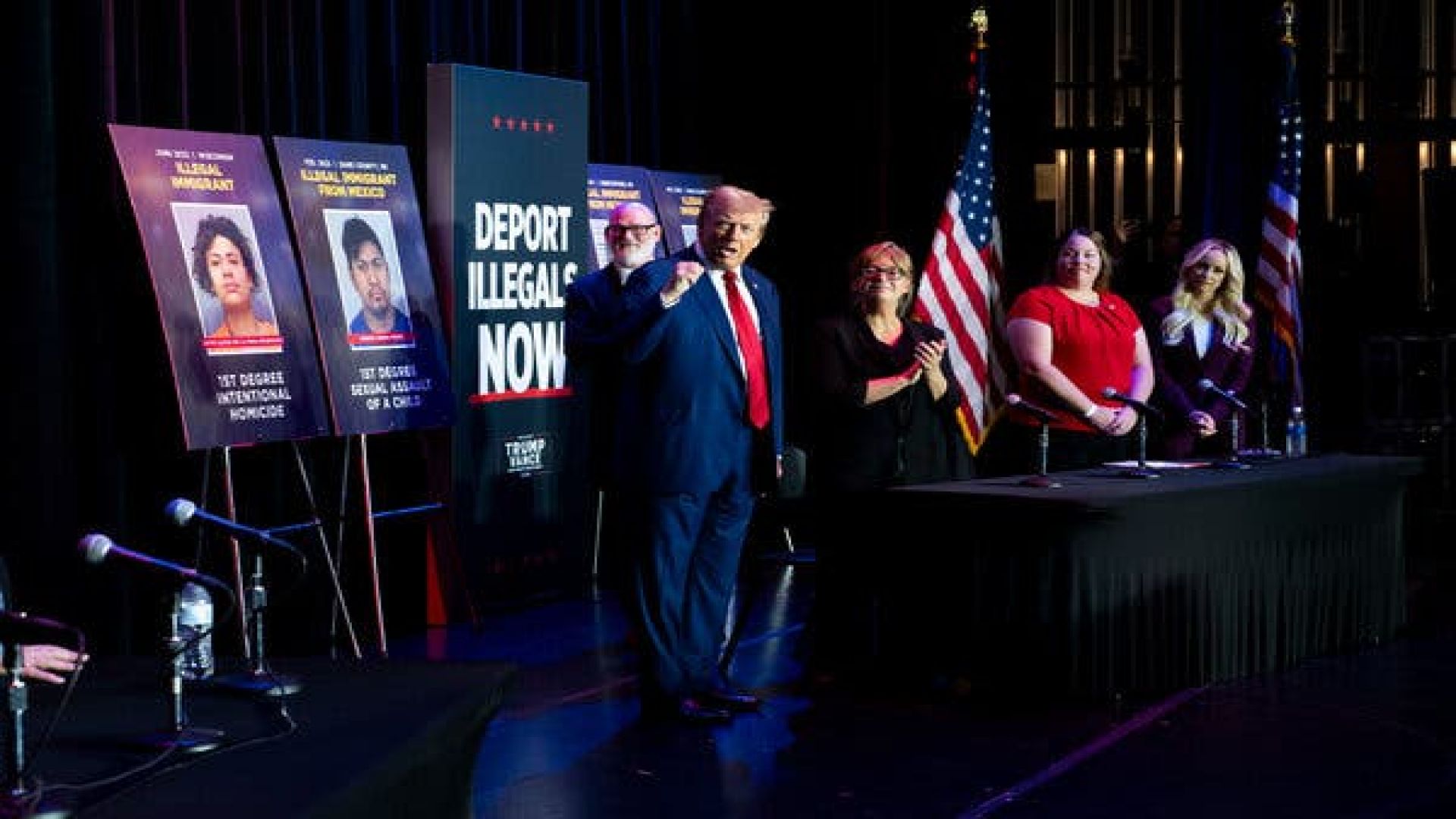The day after Vice President Kamala Harris visited the southern border to pledge tougher asylum measures and increased security, former President Donald J. Trump launched several personal attacks against her during a rally in Prairie du Chien, Wisconsin. In a speech lasting over an hour, Trump, who is typically advised to focus on policy rather than personal insults, escalated his criticism of Harris by questioning her intelligence and labeling her “mentally disabled.” He stated, “Joe Biden became mentally impaired; Kamala was born that way,” linking her to the came in light of Harris's border visit in Douglas, Arizona, where she outlined a tough stance on illegal immigration, marking a significant shift for a Democratic leader addressing a politically sensitive issue. He dismissed her speech as “bullshit” and suggested that only a “mentally disabled person” could allow the current state of immigration in the nation.
As he criticized Harris as a political opportunist, Trump framed her actions as reactive to declining poll numbers, claiming, “She is a disaster,” and asserting that she wouldn't implement meaningful changes to border security. Despite Trump's attacks, polling data indicated that 69 percent of likely voters viewed Harris as intelligent, including 71 percent of independent voters—surpassing the 60 percent who viewed Trump similarly. In his address, Trump emphasized a supposed “migrant crime” wave, despite FBI reports indicating a significant drop in murders. He used emotional appeals by introducing Patty Morin, whose daughter was allegedly murdered by an undocumented immigrant, to reinforce his claims about the dangers posed by undocumented immigrants. Throughout the speech, Trump employed inflammatory language, labeling immigrants as “stone-cold killers” and attributing various societal problems to them.
Michael Gold writes that acknowledging the dark tone of his speech, Trump remarked, “Isn’t this a wonderful and inspiring speech?” His campaign aims to use immigration as a pivotal issue to gain traction in critical battleground states, but he often deviated from his intended message with personal tangents, such as questioning climate change and attacking Harris’s past employment claims. While Trump continued to insist on prosecuting alleged election fraud if elected, the competitive race between him and Harris was evident, with recent polls showing Harris narrowly leading Trump in Wisconsin, 49 percent to 47 percent. Harris's campaign did not directly address Trump’s attacks, instead framing his rhetoric as indicative of a lack of inspiring solutions for voters.


